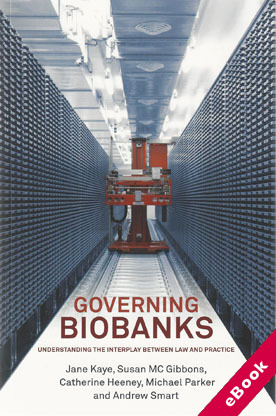
The device(s) you use to access the eBook content must be authorized with an Adobe ID before you download the product otherwise it will fail to register correctly.
For further information see https://www.wildy.com/ebook-formats
Once the order is confirmed an automated e-mail will be sent to you to allow you to download the eBook.
All eBooks are supplied firm sale and cannot be returned. If you believe there is a fault with your eBook then contact us on ebooks@wildy.com and we will help in resolving the issue. This does not affect your statutory rights.
Biobanks are proliferating rapidly worldwide because they are powerful tools and organisational structures for undertaking medical research. By linking samples to data on the health of individuals, it is anticipated that biobanks will be used to explore the relationship between genes, environment and lifestyle for many diseases, as well as the potential of individually-tailored drug treatments based on genetic predisposition. However, they also raise considerable challenges for existing legal frameworks and research governance structures.
This book will critically examine the current governance structures in place for biobanks in England and Wales. It will show that the technologies, techniques and practices involved in biobanking do not always conform neatly to existing legal principles and frameworks that apply to other areas of medical research.
Using a socio-legal approach, including interview data gathered from the scientific community, this book will provide unique insights and make recommendations about appropriate governance mechanisms for biobanking in the future. It will also explore the issues around the secondary use of information, such as consent and how to protect privacy, when biobanks will be accessed by a number of different third parties.
These issues have relevance both within England and Wales and to a wide international audience, as well as for other areas where large datasets are used.